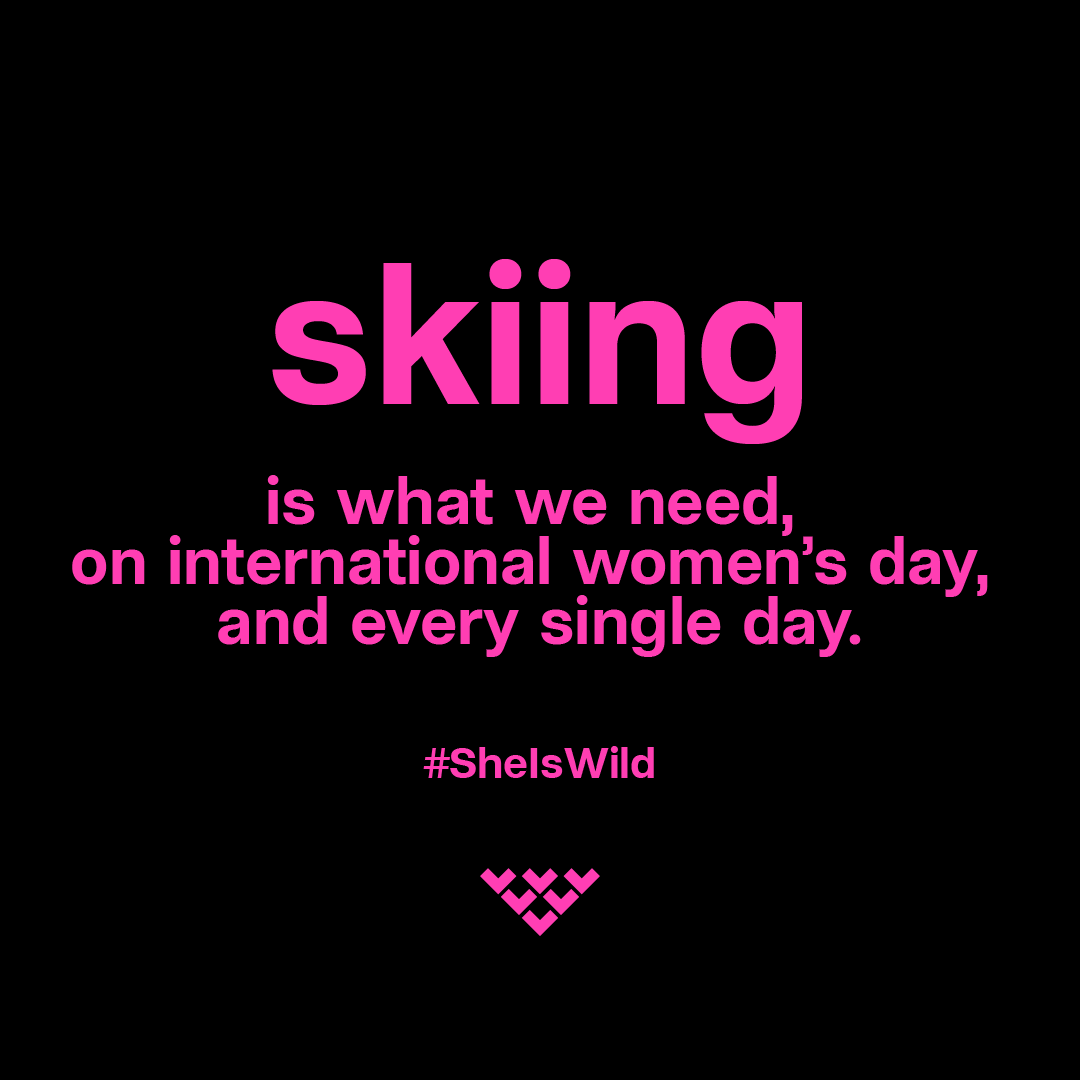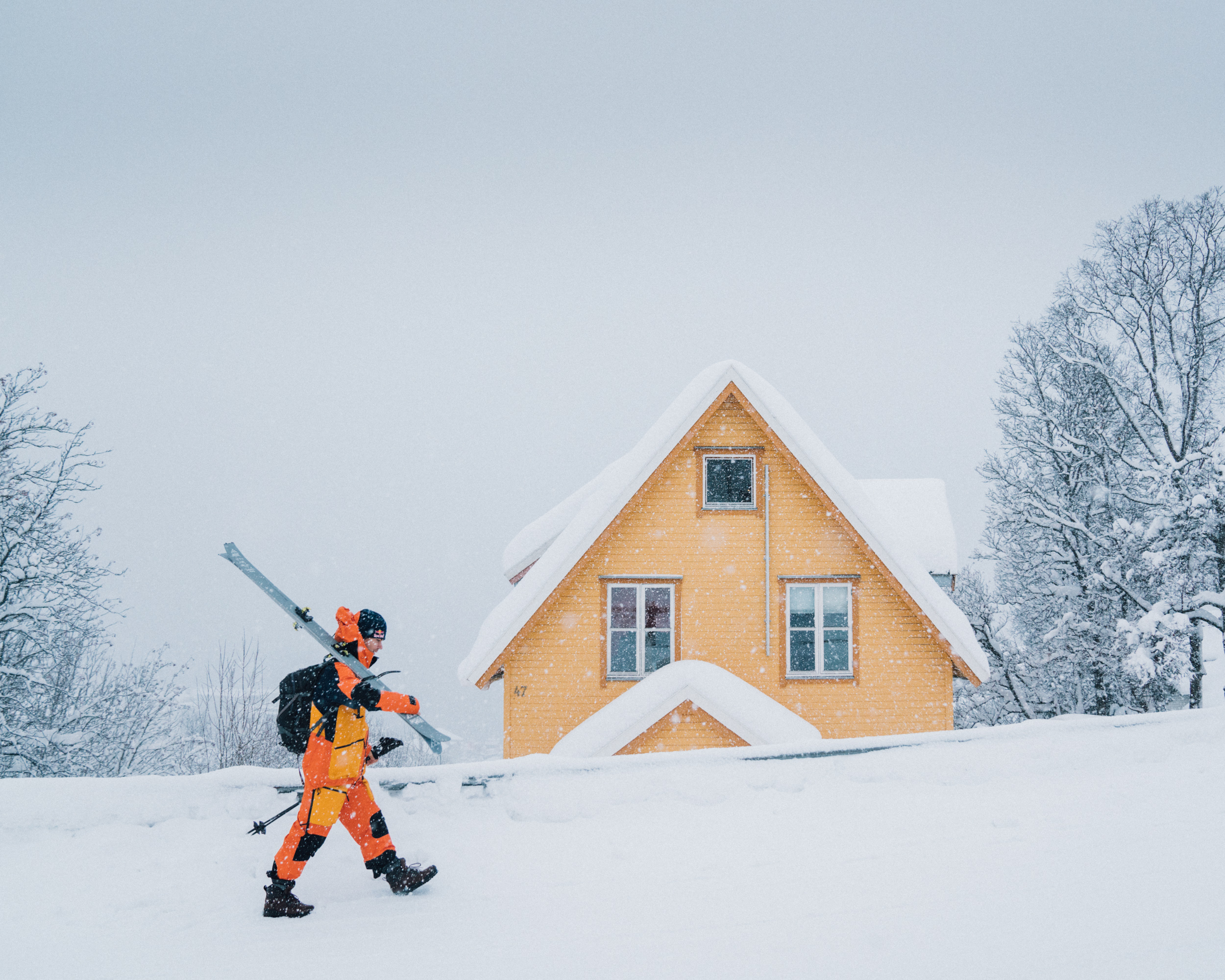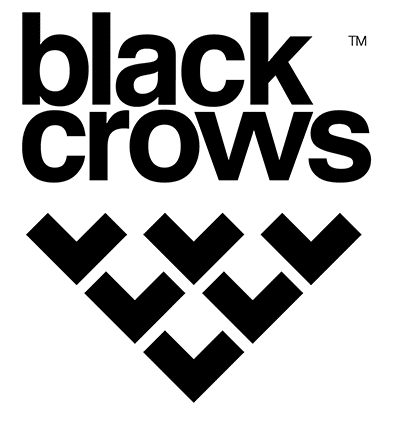A meeting with the crow Lukas Ebenbichler, environmental technologist and rescue worker in the beautiful Austrian mountains when he isn’t travelling the globe with his long shoes of wood and woven fibres. A childhood spent in close contact with nature, an adolescence riveted to slalom stadiums and, after a serious skiing accident, the rediscovery of the wild world. A mixture of action and contemplation, Lukas is deeply rooted in the nature of the countryside.
BC: You grew up in the mountains, can you describe your hometown?
Lukas: I grew up in Brandberg, a small town about 5 min away from Mayrhofen, a major tourist spot in Tirol. It’s a small mountain town with one hotel and 3 restaurants. There are also two gondolas and the ski area is linked to two other resorts which makes a big playground. Our town is strongly connected to skiing, we had some proper ski-racers back in the days and Peter Habeler, the first human to climb Everest without artificial oxygen, just to name a few. The town Mayrhofen itself is fully focused on tourism, even in summer, so it is quite busy to live here sometimes.
BC: Did you grow up doing some outdoor activity with your family?
Lukas: We are three brothers and we all three were into ski racing so we spent all free time in the mountains training for races. In summertime we hiked around at home, went for bike rides and also climbing. Our parents were always super focused on outdoor activities, showing us the beauty of nature and providing us a mountain-based education.
BC: How would you describe your evolution as a skier, from racing to skicross to freeski?
Lukas: When I was young, I wanted to be like Hermann Maier – that strong, fast skier who smashes the gates and won all races – be famous and ski all winter. That’s how I decided to enter the sport study program in Salzburg at 14 years old. I was doing good but not good enough for the Austrian Ski Team and, suddenly, my older brother, Chris, became a National Team Skicross-racer. So I wanted to follow his steps and started to focus on that goal. Besides that, I skied in the backcountry but just in a training aspect. After a few national races, I competed within FIS and Eurocup races.
BC: Can you explain what happened during that accident and about the coincidence with your brother’s accident.
Lukas: I was in the quarterfinal and left the gate in position 2. A guy in front of me lost his ski just before an S-turn and, due to the cold weather, he sprayed a lot. So, I slowed down because I thought he was in that snowdust, but a guy behind me didn’t hit the breaks and jumped directly into my back with his ski tips. In the end, two months on crutches, bad rib contusions, kidney contusions, traumatic brain injury and fucked up spinal column. My brother Chris had a way worse accident one year before, on the same exact date at a Worldcup-race. Broken arms, orbital fracture, broken cheekbone, torn ACL and so on. Two bad years for us.
BC: Do you guys keep away from skiing on that particular date now?
Lukas: Haha, no we don’t, us three brothers (Me, Chris and Benedikt) mainly ski together on that date, I guess it is a date to remember because from that day, things changed for the best.
BC: Do you ski often with your brothers?
Lukas: We try to ski as often as possible. They taught me a lot. It is always challenging to go with your older brothers because you want to show them your potential and try to confront them with situations they are not used to. So we all benefit from it. I am the youngest of us three so it was always quite a hustle to go against those two. But as we grow older and wiser, it doesn’t happen much anymore. We are good team, and that’s what counts.
BC: After skicross, you stepped into freeride comps, did you find what you were looking for?
Lukas: At first, I was super psyched to compete and thought yeah this is it, competing. A memorable day was in St. Moritz, while waiting to start at the Engadinsnow: perfect bluebird weather, cold and it had snowed for the last 5 days… And there I was, standing on top of a face for about 3 hours to just go down once, which doesn’t suit my way of skiing. I thought: this is not what I want to do on my skis. So progressively, I started to film and shoot. But hats off for all those guys competing in the World Tour, you are badasses and I have a lot of respect for you, but it is not my thing.
BC: Do you think there are real differences between slope skiing and powder skiing or is it all the same for you?
Lukas: Sure there is a big difference between them, because slope skiing is on groomed pistes with mainly no obstacles (besides tourists). You just concentrate on your turns. It is fun to go full speed with race-skis. When it comes to backcountry-skiing, you have so many more aspects to focus on. How is the stability of the snow? What is behind that ridge or underneath that snow layer? It’s much more challenging. The most important thing, I guess, is that you are more connected to the mountain and to nature.
BC: What stands out from last season?
Lukas: There are no bad days out on the mountain but what stands out was Japan and Norway, those are my two highlights from last season. We were filming for our latest project “Characters on Skis”. We thought it would be great to bring in some different landscapes so we decided to jump on the plane and fly there. It was outstanding, different land and different skiing, an experience you never wanna miss.
BC: Japan and Norway, very different I suppose, how would you compare those places?
Lukas: Totally different. Norway with its beauty, all the fjords, the peaks standing out of the water, that open and wide terrain and those tiny red houses, mooses running around like cows in Austria. Beautiful, I’ll definitely go back. Japan was also amazing, landing in Sapporo after 24 hours of travels and everybody is smiling, that was funny. All super friendly but not able to speak any proper English so it was more body language.
BC: Was it your first time in Japan? Was it a skiing and cultural shock?
Lukas: Yes my first time in Japan. The first day of skiing, we were super happy to ski in 20cm of powder, but after that day it kept snowing all day long for about 10 consecutive days. We were in powder heaven. It was just amazing, every time first tracks. We skied from 8 to 6 and just stopped for a fast sushi and went on. Culture shock, not that much. We knew that they are always smiling and are super correct, so it was quite ok, except the bathrooms, that was new. Sitting with 8 Japanese guys in a room on a little stool showering in front of a mirror. Haha.
BC: Any other lost in translation moments?
Lukas: One funny thing I can remember well was the time I was walking through a big shopping mall in Chitose, waiting for the taxi to the airport. I was the only European guy in that mall, and with blonde hair and blue eyes you are kinda a highlight for them. I took around 100 photos mainly with girls. Haha. Funny experience.
BC: What skis did you bring there?
Lukas: For those kinds of conditions you need a fatboy to ski fast and always get out of that blower pow. This time I used the Anima in 194, because it is my all-conditions choice. Perfect ski, with a perfect shape and just fun and aggressive to ski with. Better would be the Nocta cause it is the flagship for these kinds of conditions. A wide powder ski with rocker to go full throttle and not worry about diving too deep.
BC: How was the skiing around your hometown during the season?
Lukas: It was kinda tricky due to the lack of snow and the unstable weather. It was highly dangerous on certain aspects. You had to search a lot and be able to analyse the mountains, otherwise you are in trouble with those kinds of conditions. But more or less, I found a couple of good places where I had a rad time.
BC: About the new place you skied in Zillertal, what was the goal and how did it go?
Lukas: The goal was to ski an unskied face, which we had always looked from a distance. So, with Roman Rohrmoser and Jule Neumann, we went up there to ski it for the first time. We left the filmers on the opposite side of the valley. In the upper part of the face, it was a little bit flatter but when we entered the middle part it turned out to be steeper with proper spines. Kinda looked like AK. We hiked up for about 3 hours and skied it in like 6 or 7 turns down. So a long way for a short descent but it was all worth it, best day of the whole season at home.
BC: What do you usually do in the summer?
Lukas: During summer, I am working in my father’s office. We have a surveying company, measuring new properties, helping people to build their house properly, building animations to prevent people from natural hazards. So, a lot to do. Besides working, I spent a lot of time in the mountains, climbing, mountaineering and biking. I am also an active member of the mountain rescue here in the Zillertal.
BC: Can you describe your work as a mountain rescue?
Lukas: I’ve been doing that for 2 years. It is a fulfilling task but also hard. You see things you usually never see. Every duty call is different: avalanche accidents, climbing accidents, missing persons and mountaineering accidents. While helping others, you are always in danger, you have to be fully prepared because you reach your personal limits. You are not just responsible for you and your patient but you are also responsible for your teammates. I am doing this because I want to help people in danger and because I would like someone to do the same for me if I was in danger.
BC: What are your projects for the coming season?
Lukas: I will start a new project called “Hinterm Haus” (behind home). The idea is to present my home in a different way. I want to show that we also have proper steep skiing here. You don`t have to go somewhere else because you have everything here. This is the idea and it will probably be a two-year project. I will be hiking in our backyard, trying to find new places, steep lines and so on. Furthermore I will continue filming with Midiafilm and maybe do a trip to Russia and Japan with them. I have been filming with them for two years and this year will be our third project. We are all friends and lucky to have a creative filmer with us.
BC: And last but not least, what skiing means to you?
Lukas: Skiing means everything to me. I do not see it as a profession or job, I see it as a privilege. I love what I do and I am happy to do it freely. Skiing is such a strong connection to nature and mountains, it makes you stronger and lets you forget everything else. I am happy to share that with the people I like and especially with one person I love.


